5 positive influencers making a difference online
Among the stresses of being a teenager, more than a third feel upset about their body. It affects everyone differently, but a negative body image can be serious: it’s associated with a poorer quality of life, including psychological distress, eating disorders and smoking. It can also affect school performance and attendance.
As an image-focused app, Instagram often gets extra scrutiny. At the start of 2019, an estimated 24 million people in the UK used it, for an average 53 minutes a day. Instagram’s especially popular among young people; up to 71% of females and 61% of males aged 15 to 24 use it.
As anyone who’s ever asked a young person to put their phone away will know, suggesting they ‘just log off’ won’t get you very far. Social media is vast and complex – it has a positive side, too. Over the past decade, the idea of body positivity has been on the rise on social media.
The Centre for Appearance Research at the University of the West of England found that exposure to body-positive posts on Instagram was associated with improvements in young women’s mood and body satisfaction, relative to thin-ideal and neutral posts.
We spoke to five social media game changers about their Instagram feeds, the messages they share and how they take care of themselves on social media – including how they cope when the hate comes flooding in.
Megan Crabbe - @bodyposipanda
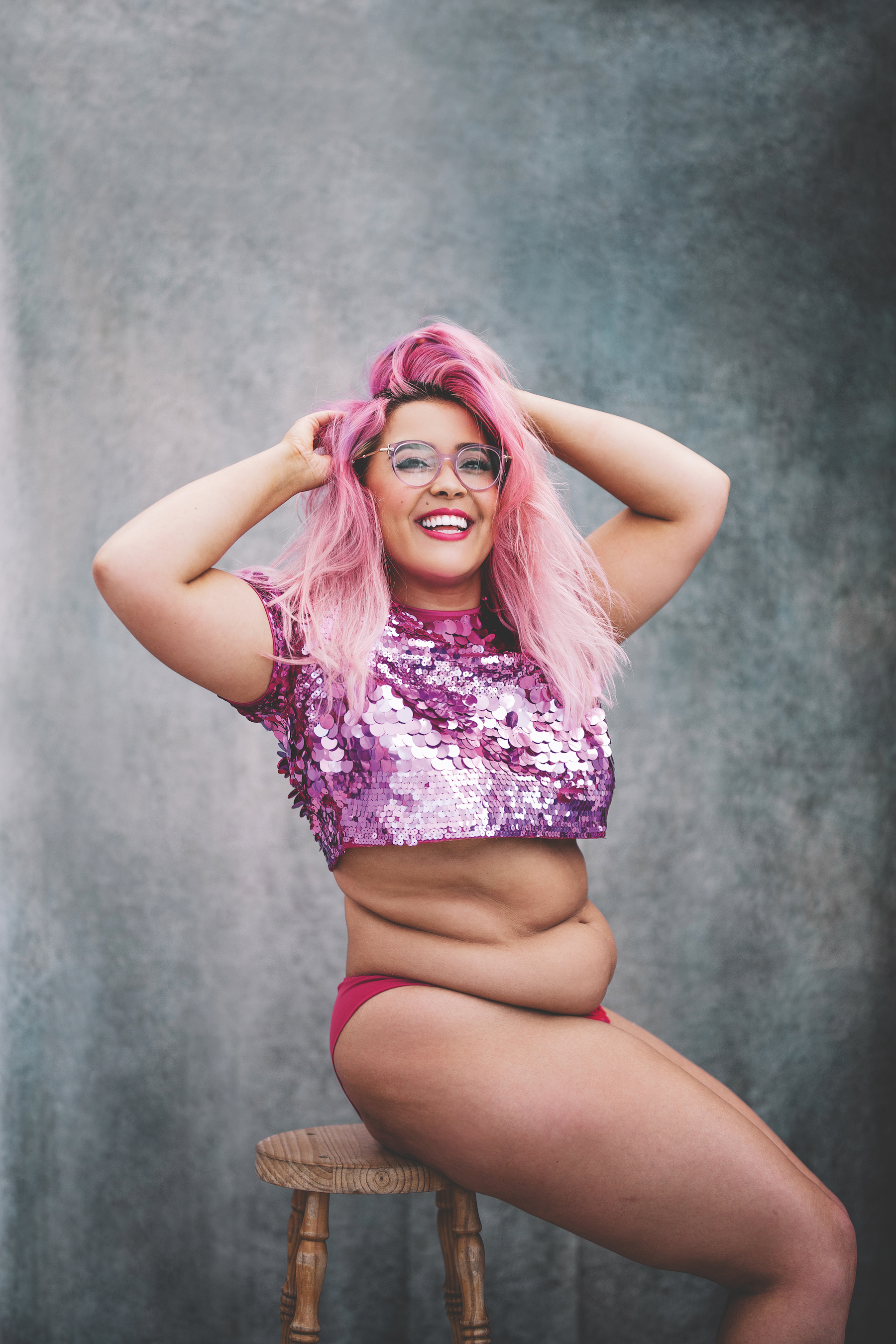
Why did you start your Instagram account?
I discovered the body positivity movement – at the time it was a small community. I was fascinated by diet culture (our cultural obsession with dieting, weight loss and thinness as the only way to be good enough) and fatphobia (our cultural fear of fatness and thinking that fat is the worst thing you can be) and I wanted to write about it. I also wanted to challenge myself to post pictures of my body as it was changing from no longer dieting.
What’s the biggest message you want to get across?
That people deserve better than hating their body – even if they can’t see how they could possibly stop. I’d like them to look at me and see that a different way is possible; they’re just as deserving of body peace as I am.
What’s the next step for the movement towards body acceptance?
We all could benefit from taking a look at where we’re getting our body positivity from: are we just accepting the most palatable versions? My success is based on the privileges I have in my body. I don’t push the boundaries of what society says is ideal too much – I’m medium-sized, able bodied, young, mixed race but light skinned… So many people in bodies more marginalised than mine are saying the same things but not getting the recognition or attention they deserve.
On such a visual platform like Instagram, how do you keep a sense of perspective and avoid defining yourself by your body?
That’s been especially tricky for me to navigate in this last year as I’ve been labelled more and more as an ‘influencer’ and brought into the world of events and photoshoots and trips. They’re incredible opportunities, but they’re about getting the right picture with flawless make-up and outfits. I find myself getting a little bit lost in that.
I challenge myself to post things that I wouldn’t have considered ‘Instagram worthy’ a couple of years ago, or to not wear as much make-up for a while. I remind myself that I have more to offer than how I look and I ground myself in activities that remind me of that.
How do you deal with horrible comments?
They bounce off me now. It took a long time – it hit me hard at first. The people who come onto my account and attack me aren’t people whose opinions I wish to put value in. The only people whose opinions of me I wish to value are the people that I love and myself. I’ve taken away their power to define me; I get to do that.
Molly Forbes - @mollyjforbes
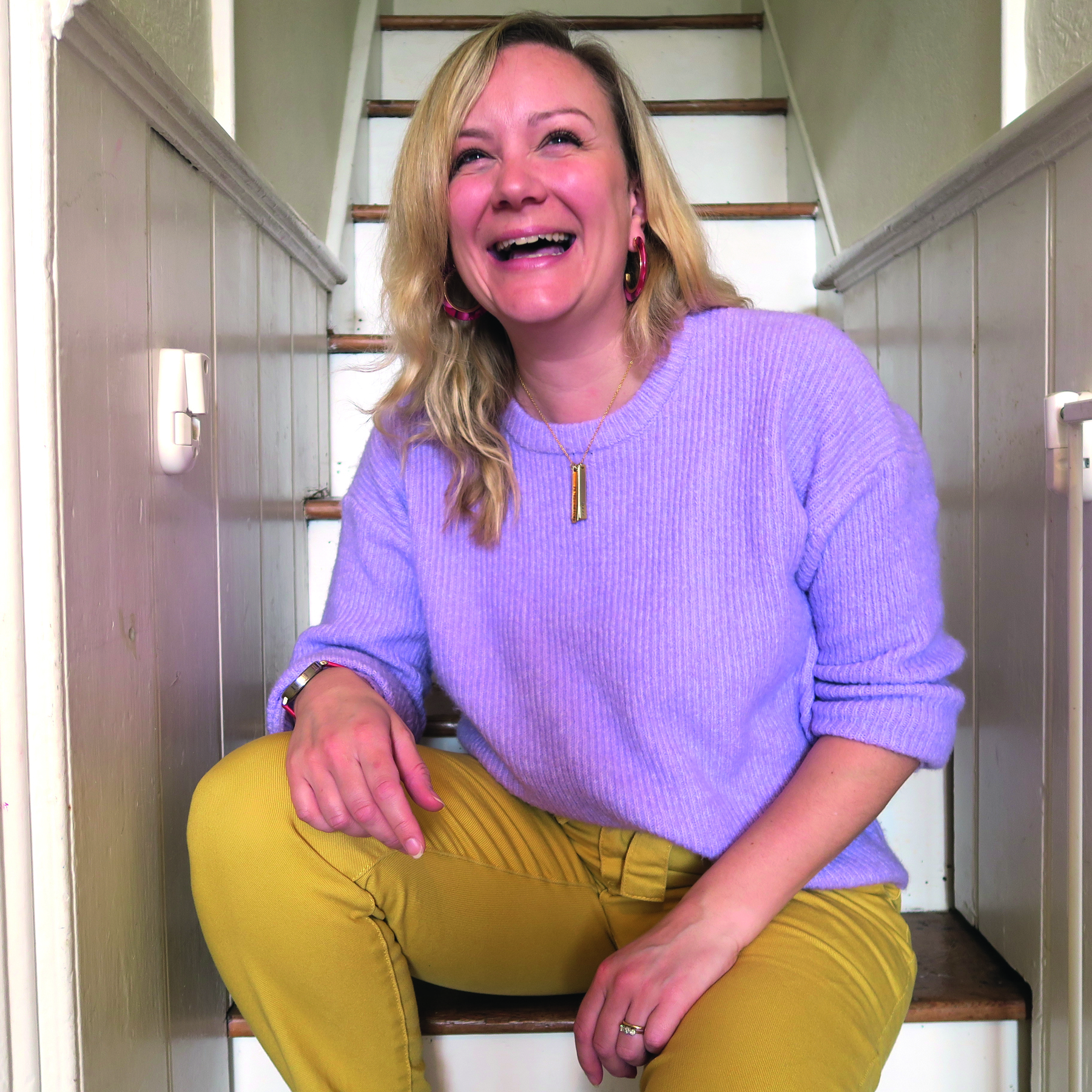
You’re a mum. What are your top tips for navigating the topic of body positivity with kids?
It’s not necessarily about how positive you are – but it really matters how negative you are. If you’re not sure you can say nice things about your body, avoid saying anything negative (like diet chat, talking about calories, or placing morality over food). Children learn through role modelling. If you’re telling them they’re brilliant and worth more than their bodies, but you’re talking about yourself negatively and showing that your appearance is really important to you, that’s the bigger message.
How do you make sure that social media doesn’t damage your wellbeing?
I take my own advice! I try not to use it too late at night because it affects my sleep. I have regular days off; I turn off my phone and keep it out of the way for a bit. If it’s starting to make you feel down, step away! Even if all your mates are online, you don’t have to be plugged in 24/7.
Social media is one of the few places in our world where we have a certain amount of control over what we see. If an account is making you feel inferior, don’t be afraid to unfollow. I sometimes worry that if I unfollow someone they’ll be upset, but actually, it’s protecting your wellbeing. If you don’t want to unfollow, mute them – they don’t even have to know. You can take responsibility about what shows up in your feed, much more than on television and in magazines. I try to think of my likes as a ‘click currency’. We all have a certain amount of power in raising up positive accounts, so they’re more likely to show up in our feeds and other people’s too.
How do you deal with negative comments on social media?
I get loads! I’m not going to lie and say it doesn’t bother me. I’m sensitive and empathetic, that’s what makes me good at my job, but if someone says something nasty, it hurts my feelings. It helps to remember where those comments come from. When I felt unhappy about myself, I’d never message someone something nasty, but I’d often think that nasty thought. It was always a reflection of how I felt about myself.
I try to allow myself to process it for five minutes, then I move on and get it back into perspective. I surround myself with friends and my family. My husband isn’t at all interested in any media (including social media) – that keeps me grounded, and reminds me what the important things are.
Virgie Tovar - @virgietovar
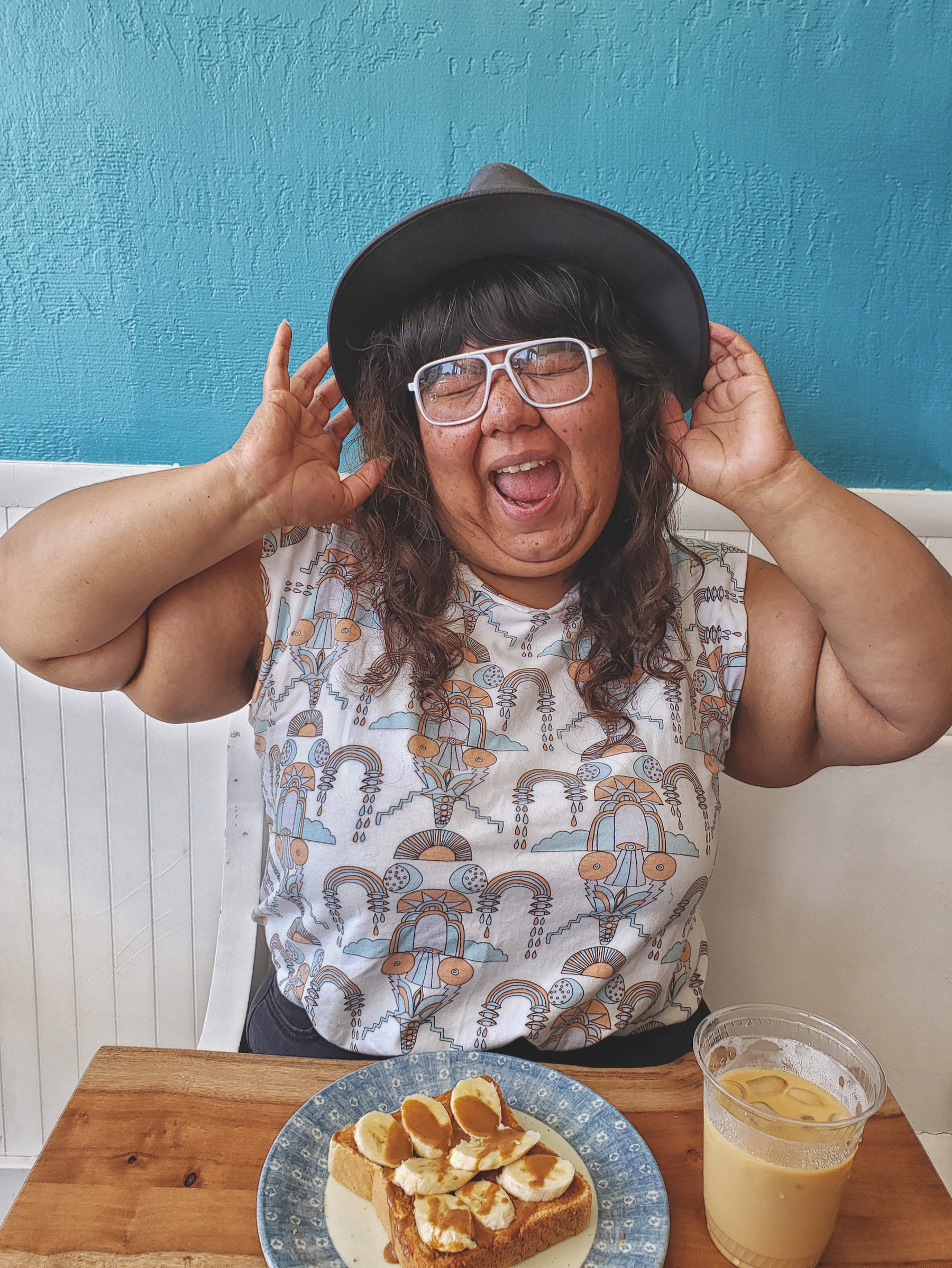
What’s your biggest message?
That every person deserves to live free from discrimination and thrive, regardless of size or health status. I met a group of fat activists who refused to diet and they were living fabulous lives. I realised that was what I’d always wanted: to be able to live a happy life full of things that people care about (like romance, and friendship, and going to the beach) as a fat person! I’d been taught that only thin people got those things. My account is a documentation of my own joy and the things that matter most to me, as somebody who prioritises thriving. When you’re a woman, and you’re fat, and you’re a person of colour, like myself, there’s something really powerful in that.
Does seeing different-sized bodies online matter?
Social media can shift the occipital lobe (the visual processing centre of our brains). To see how it happens, go to the plus-size section of a website. Spend 30 minutes looking, then go to the ‘normal’ size section. Those models, who if starting there would’ve looked ‘normal’, look very much below average. And that’s the reality: most models are not the national average. I’m noticing more honest representations of bodies, and I’ve felt emboldened. Powerful change happens when we take a step into fear and vulnerability and document our bodies the way they really exist, including the jiggle, the chub rub, or the arm fat!
How do you use social media without it damaging your wellbeing?
‘Do not scroll’ is my main rule, it’s the only way I can stay grounded. Most of the time, I go to my profile, do whatever, and leave. To see how my friends are doing, I go straight to their accounts. I mostly use social media to connect with people I know in real life because I can understand their complexity. I know that they live a regular life with problems, just like all of us.
It wouldn’t be appropriate to expect them to share those moments on social media, but when we don’t see that complexity it creates an image that we’re failing.
How do you deal with negative comments on social media?
Sometimes people are just prejudiced. There’s still a moment where I feel hurt because someone has said something hurtful; it’s a normal, human response. But I have a rule that I don’t allow bigots to determine my mood. If you’re a troll, I’m going to delete your comment, report you and block you.
Conflict can escalate very quickly where there’s no face-to-face contact, so I have a 24-hour cooling off period. The minute feelings of conflict begin, I walk away. It’s difficult, but no matter how important (and honestly, no matter how timely) the conflict is, it’s better to take that time.
Dan Richards - @theonearmedwonder
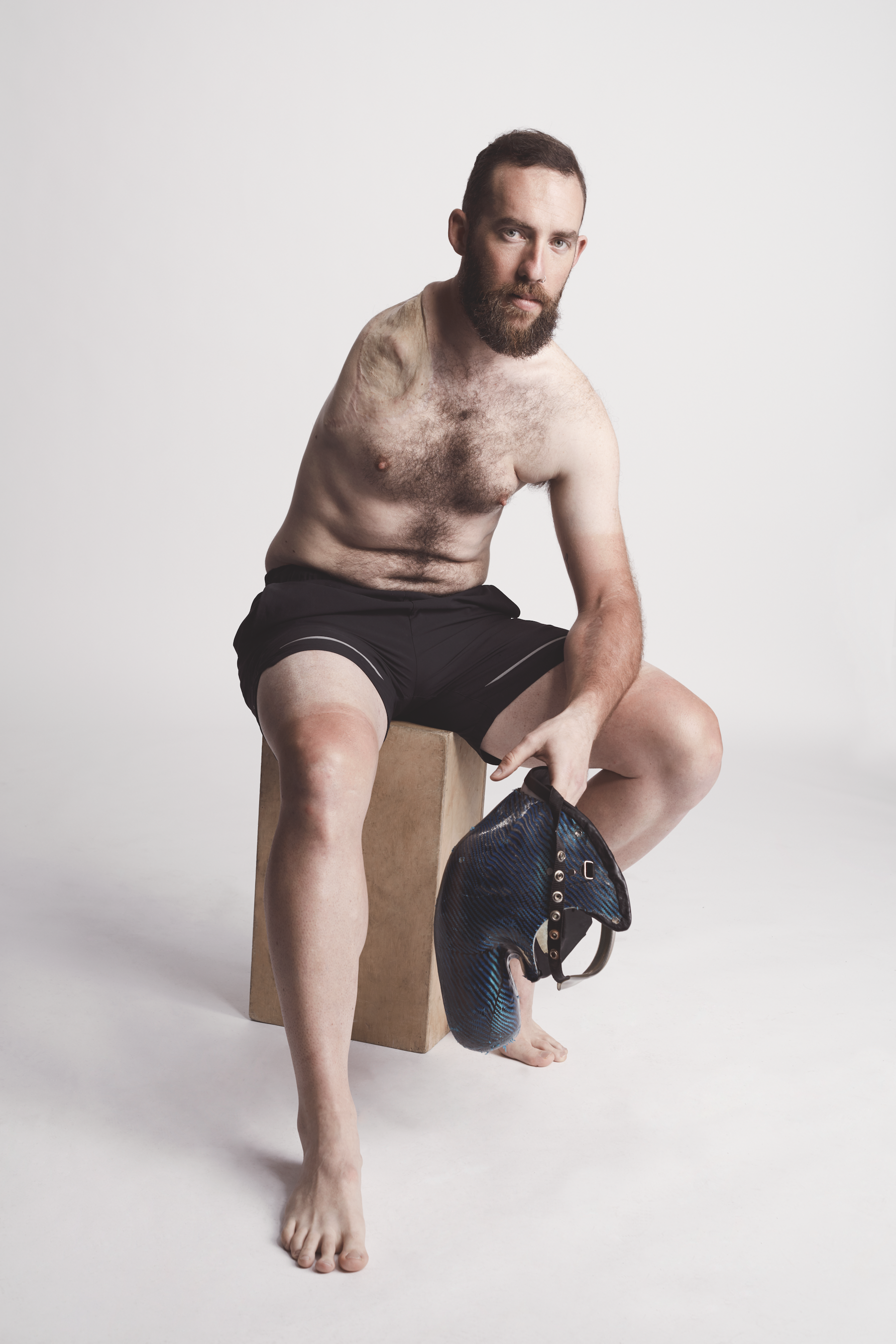
What’s your biggest message?
I promote body confidence and positive body image. The media feeds a perfect, idealistic image of what a person should look like. I dealt with my own self-acceptance a few years ago; I know what it’s like to go down that road.
I’d compare myself to other men, looking at photos and thinking ‘I’d love to look like that’ – but I’m never going to look like that. For one thing, my arm and shoulder are never coming back, no matter how advanced medical science gets! At my worst, I’d even compare myself to other upper limb amputees; it was very morbid. Then I had a lightbulb moment where I thought, ‘I can’t keep doing this.’
How does body image affect men?
When you mention body confidence, everyone straight away jumps on the idea that it only affects women. That’s so far from the truth. It can affect anyone, and it’s not just about size. Anything that you don’t like about yourself that’s on your body (for example, scars or birthmarks) can give you a negative body image. The minute you start talking about your feelings, it’s an area of vulnerability; the thing I’ve found with men is that you get the impression that being vulnerable is being unmanly.
A lot of men are reluctant to talk about a lot of things, but I think the most courageous thing a man can be is vulnerable. When I asked for help, it didn’t make me less of a man. Being vulnerable allows empathy as well – you can appreciate other people’s experiences when they go through hard times.
How do you deal with negative comments?
I’ve been quite lucky really, I’ve only ever had one troll. I find it happens a lot more to women. I replied to the troll with a joke, laughed at myself as I did it, and left it at that. They never replied – I killed them with kindness. There’s two ways of looking at any situation: fly off the handle, or look at it, digest it, and then make a decision.
I try not to get consumed with one little thing that could ruin my day. I’m still a normal person: things might happen very close to home and make me angry, but I don’t put that online for the world to see. There are things that you wouldn’t share online. Anyone that uses social media to influence an audience, whether you have one follower or a million followers, has to use it responsibly.
Imogen Fox - @the_feeding_of_the_fox
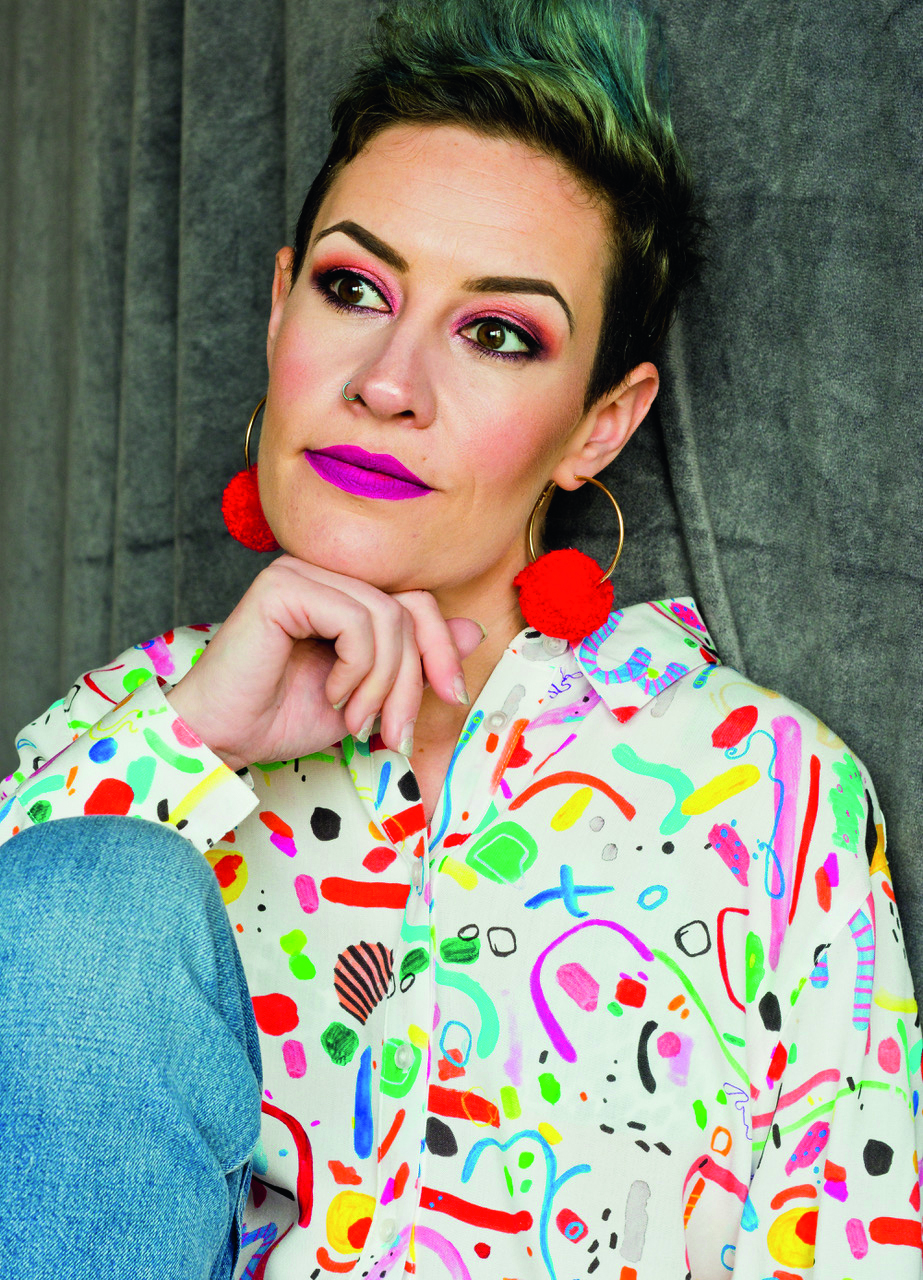
What’s your biggest message?
Fundamentally, that your body is never to blame. Society’s messed up, and it’s nothing to do with you – your body is never the problem.
Why do you post such honest stuff?
If I’m experiencing something, at least one other person feels like I do. Sharing how I’ve moved through it helps other people think they could feel differently, too. I post pictures and people message me saying they’d been ashamed because they didn’t think anyone else had a body like theirs, but mine was and they thought it was lovely!
Why do you talk about being neutral about your body?
Who told us that we needed to love our bodies? It’s overambitious for a start, we just have to get on with what we’ve got. It’s about trying to find a place where, with the upmost kindness, you can see that your body just carries who you are.
We’re not our bodies: we’re minds and souls and spirits, all the glorious stuff. I don’t love every inch of my body. As a disabled person, I think it’s unhelpful and unfair to ask marginalised bodies to love the thing that makes them oppressed, even though society is ultimately to blame for that.
Why do you share other accounts on your Instagram stories?
I try and show bodies you’d never normally see, especially in the media. All the extremes are normal, but you can’t know what’s normal if you don’t see it. The truth is a rainbow of diversity and delight.
You can curate your feed so all bodies become normal. It’s almost like exposure therapy – if you keep seeing glorious fat bodies, eventually you’ll feel like celebrating your body for its difference rather than using that as a reason to punish it.
Do you curate your own feed?
I have strong boundaries. If anyone talks about diets or body shames, I’ll pop them a message and say, ‘While you’re doing that I just can’t follow you.’ Most people are lovely about it. Imagine how you’d feel if all you saw on your feed was things that made you smile. Make your feed entirely kittens for two weeks and see how different social media feels at the end of it.
Does social media have the power to change the real world?
I really want to believe so. I hope for more than people leaving the page feeling a little more comfortable in their own skin: I hope they want others to feel comfort in theirs, too. I hope people speak out more when they hear someone being horrible, or notice that events aren’t accessible, or that ad campaigns aren’t diverse. It needs to be more than personal, otherwise nothing changes.
Remember, people must be 13+ to use Instagram. For section-specific information on staying safe online, visit scouts.org.uk/staysafe.